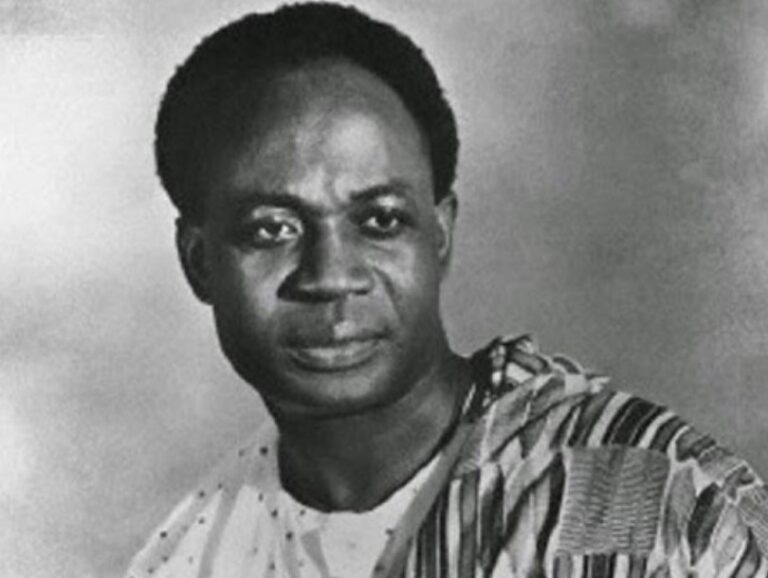Freedom Fighters
Africa was not short of intelligent and courageous people who stood up to fight for freedom for their people.
Enrich your knowledge by taking a look at some of those courageous leaders who fought for Africa’s independence.

Africa was not short of intelligent and courageous people who stood up to fight for freedom for their people.
Enrich your knowledge by taking a look at some of those courageous leaders who fought for Africa’s independence.

Kwame Nkrumah was a Ghanaian politician and revolutionary who led Ghana to independence from Britain in 1957, making it the first sub-Saharan African country to gain independence. He was a key figure in the Pan-African movement and advocated for the unification of Africa.
Jomo Kenyatta was a Kenyan nationalist leader who played a central role in Kenya’s struggle for independence from British colonial rule. He became Kenya’s first Prime Minister and later its first President after the country gained independence in 1963.
Patrice Lumumba was the first Prime Minister of the Democratic Republic of Congo (then known as the Republic of the Congo) after it gained independence from Belgium in 1960. He was a nationalist leader who advocated for the Congo’s full sovereignty and opposed neocolonialism, but his tenure was short-lived due to his assassination in 1961.
Nelson Mandela was a South African anti-apartheid revolutionary and political leader who spent 27 years in prison for his activism. He became the first Black President of South Africa in 1994 after the fall of apartheid and is celebrated for his role in bringing about reconciliation and democracy in the country.
Haile Selassie was the Emperor of Ethiopia who resisted Italian colonization and later became a symbol of African independence and unity. He was a founding member of the Organization of African Unity (OAU) and played a significant role in promoting Pan-Africanism.
Julius Nyerere was the first President of Tanzania and a key figure in the country’s struggle for independence from British rule, which was achieved in 1961. He promoted African socialism through his policy of Ujamaa (community) and was an advocate for African unity and development.
Amílcar Cabral was a revolutionary leader who led the independence movement in Guinea-Bissau and Cape Verde against Portuguese colonial rule. He was a co-founder of the African Party for the Independence of Guinea and Cape Verde (PAIGC) and is remembered as a leading strategist in anti-colonial warfare.
Ahmed Ben Bella was a leader of the Algerian National Liberation Front (FLN) and played a key role in Algeria’s war of independence against France. After Algeria gained independence in 1962, he became the country’s first President.
Leopold Sédar Senghor was a Senegalese poet, politician, and cultural theorist who played a pivotal role in Senegal’s peaceful transition to independence from France in 1960. He became Senegal’s first President and was a leading figure in the Negritude movement, which celebrated African culture and identity.
Kenneth Kaunda was a Zambian independence leader who founded the United National Independence Party (UNIP) and led Zambia to independence from British colonial rule in 1964. He became the country’s first President and governed for nearly three decades.
Samora Machel was a Mozambican revolutionary leader and the first President of independent Mozambique. He led the Mozambique Liberation Front (FRELIMO) in the fight against Portuguese colonial rule, achieving independence in 1975.
Nnamdi Azikiwe was a Nigerian nationalist leader and the first President of Nigeria after the country gained independence from British rule in 1960. He was a key figure in the struggle for self-governance and is often referred to as the “father of Nigerian nationalism.”
Obafemi Awolowo was an advocate for self-governance and was deeply involved in the political activities that led to Nigeria’s independence in 1960. He co-founded the Action Group (AG) party in 1951, which was one of the leading political parties in the struggle for independence. Awolowo was a vocal critic of colonial rule and consistently demanded the end of British domination in Nigeria. He advocated for policies that promoted education, economic development, and social justice.
Gamal Abdel Nasser was the President of Egypt who played a significant role in both African and Arab nationalism. He was a leading figure in the Non-Aligned Movement and supported anti-colonial movements across Africa. His leadership in the Suez Crisis of 1956 marked the decline of British and French influence in the region.
Sekou Touré was the first President of Guinea and a key figure in the country’s independence from France in 1958. He famously rejected continued association with France, leading Guinea to become the first French African colony to achieve full independence.
Robert Mugabe was a Zimbabwean revolutionary and politician who led the country’s liberation struggle against white minority rule in Rhodesia. He became the first Prime Minister of independent Zimbabwe in 1980 and later its President, although his long tenure became increasingly controversial.
Steve Biko was a South African anti-apartheid activist who founded the Black Consciousness Movement, which sought to empower and mobilize the black majority against apartheid. His death in police custody in 1977 became a rallying point for the anti-apartheid movement.
Félix Houphouët-Boigny was a key figure in Côte d’Ivoire’s independence from France in 1960 and became the country’s first President. He was known for his pragmatic approach to politics, maintaining close ties with France while leading his country through a period of economic growth and stability.
To provide the best experiences, Afrikorsou.com uses technologies like cookies to store and/or access device information. Consenting to these technologies will allow us to process data such as browsing behavior or unique IDs on this site. Not consenting or withdrawing consent, may adversely affect certain features and functions.